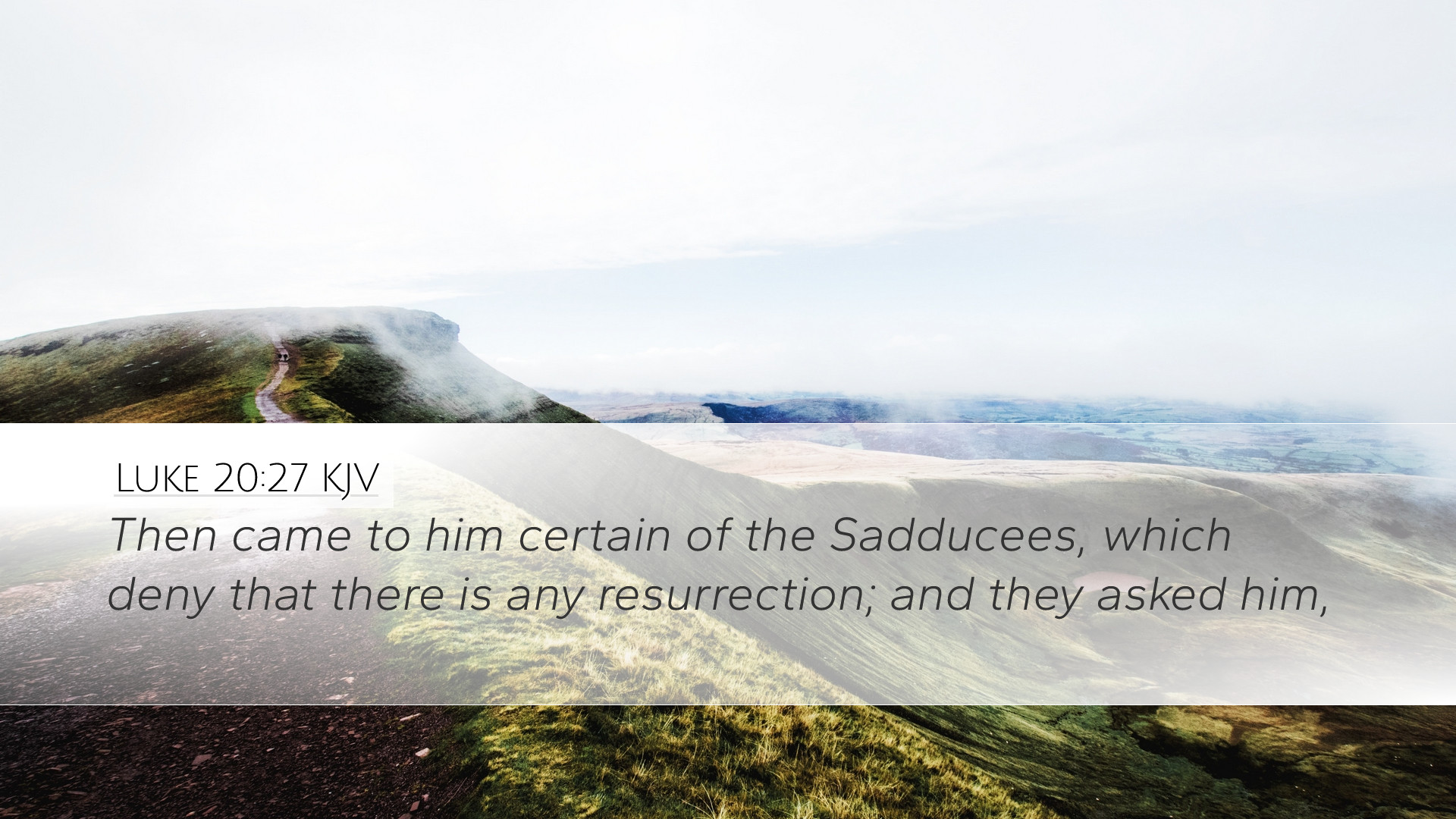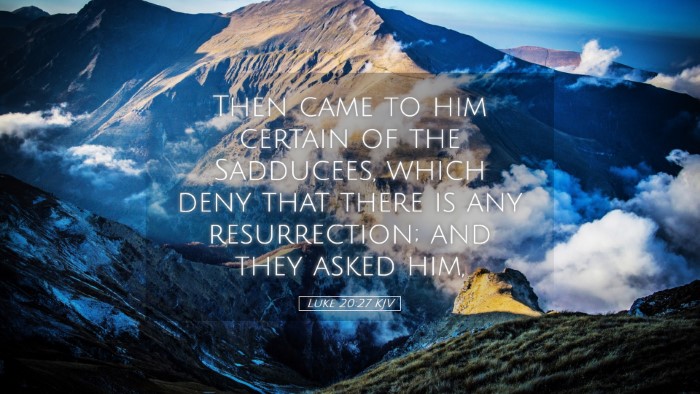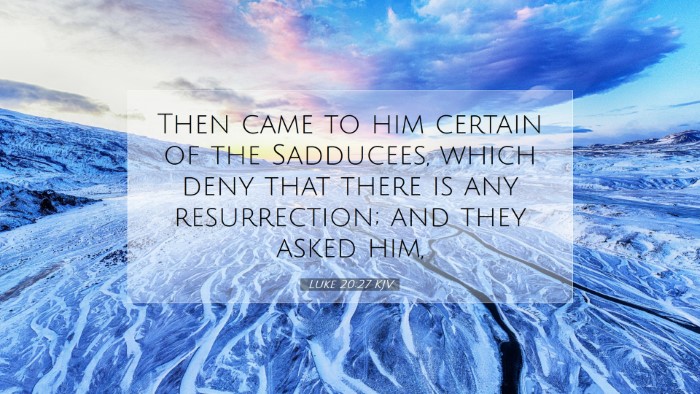Commentary on Luke 20:27
Bible Verse: "Then came to him certain of the Sadducees, which deny that there is any resurrection; and they asked him," (Luke 20:27, KJV)
Introduction
The passage in Luke 20:27 serves as a critical juncture in the dialogue between Jesus and the religious leaders of His time, particularly the Sadducees. Understanding this verse requires insights into the theological and cultural background of the Sadducees, the nature of their questions, and the implications of Christ’s response. This commentary seeks to delineate those aspects by synthesizing contributions from public domain commentaries such as those by Matthew Henry, Albert Barnes, and Adam Clarke.
The Sadducees: Background and Beliefs
The Sadducees were a dominant Jewish sect during the Second Temple period, known for their aristocratic status and their collaboration with Roman authority. Their beliefs were characterized by skepticism towards the resurrection of the dead, the immortality of the soul, and the existence of angels. Matthew Henry notes that their denial of resurrection is not merely a theological stance but a major element of their identity, which starkly contrasted with the Pharisees, who upheld these doctrines.
Albert Barnes expounds on the Sadducees’ rationale, explaining that they based their theology on the written Torah alone, rejecting the oral traditions that included teachings about resurrection and the afterlife. This led them to construct a worldview that was fundamentally materialistic, denying the existence of anything beyond the physical world.
Their Challenge to Jesus
When approaching Jesus, the Sadducees aimed to challenge Him on the doctrine of the resurrection. Their question was crafted not just to solicit an answer but to entrap Jesus into a contradictory statement or to undermine His authority among the people. Adam Clarke highlights the insidious nature of their query, which drew on a hypothetical scenario regarding levirate marriage as outlined in Deuteronomy 25:5-10. They presented an elaborate case of a woman who had married seven brothers, questioning whose wife she would be in the resurrection.
- Purpose of their Inquiry: The principal aim here was to prompt Jesus to affirm a belief in resurrection, thereby exposing Him to ridicule among the populace who shared their views.
- Hypothetical Scenario: They constructed an extreme case that they believed would highlight the absurdity of belief in resurrection by suggesting a conflict in marital status.
Jesus' Response and Its Theological Significance
Verse Context: It is vital to interpret Jesus’ response within the broader context of Scripture and the prevailing Jewish thought of the time. In Luke 20:34-38, Jesus counteracts their argument by affirming both the reality of resurrection and the nature of existence therein.
Henry points out that Jesus’ first rebuttal clarifies that in the resurrection, earthly institutions like marriage are not applicable; thus, the Sadducees misunderstand both Scripture and the power of God. He cites Jesus's claim that "they neither marry nor are given in marriage" as an assertion of a transformed existence that transcends earthly limitations.
Barnes emphasizes the foundational affirmation of life after death as essential to Christian theology. Jesus establishes that God is "not the God of the dead, but of the living," underscoring a continual existence for those considered righteous, which reaffirms God’s covenantal fidelity to His people.
Lessons and Applications for Today's Believers
In examining Luke 20:27, several profound lessons arise for pastors, students, theologians, and scholars. These insights can be summarized as follows:
- The Nature of God's Promises: Like the Sadducees, modern believers must guard against a limited view of God’s capabilities and promises. The assurance of life after death is a cornerstone of Christian faith.
- Engagement with Skepticism: Jesus’ approach invites contemporary believers to face skepticism with compassion and clarity. His example reveals the importance of solid theological grounding in discussions of faith.
- Eternal Perspective: The Church must remind itself and its members about the eternal nature of our existence in Christ. This encourages living with purpose and hope, in light of the resurrection.
Conclusion
Luke 20:27 serves as a profound reminder of the enduring truths of Christian doctrine amid challenges to its integrity. The Sadduceean inquiry represents not only a historical confrontation with Jesus but also an ongoing dialogue about faith, eternity, and the nature of God. By participating in this dialogue through careful study and reflection, today’s believers can strengthen their understanding and witness regarding the resurrection as central to the Gospel. Drawing on the wisdom of public domain commentators enriches this understanding and invites deeper theological discourse.


